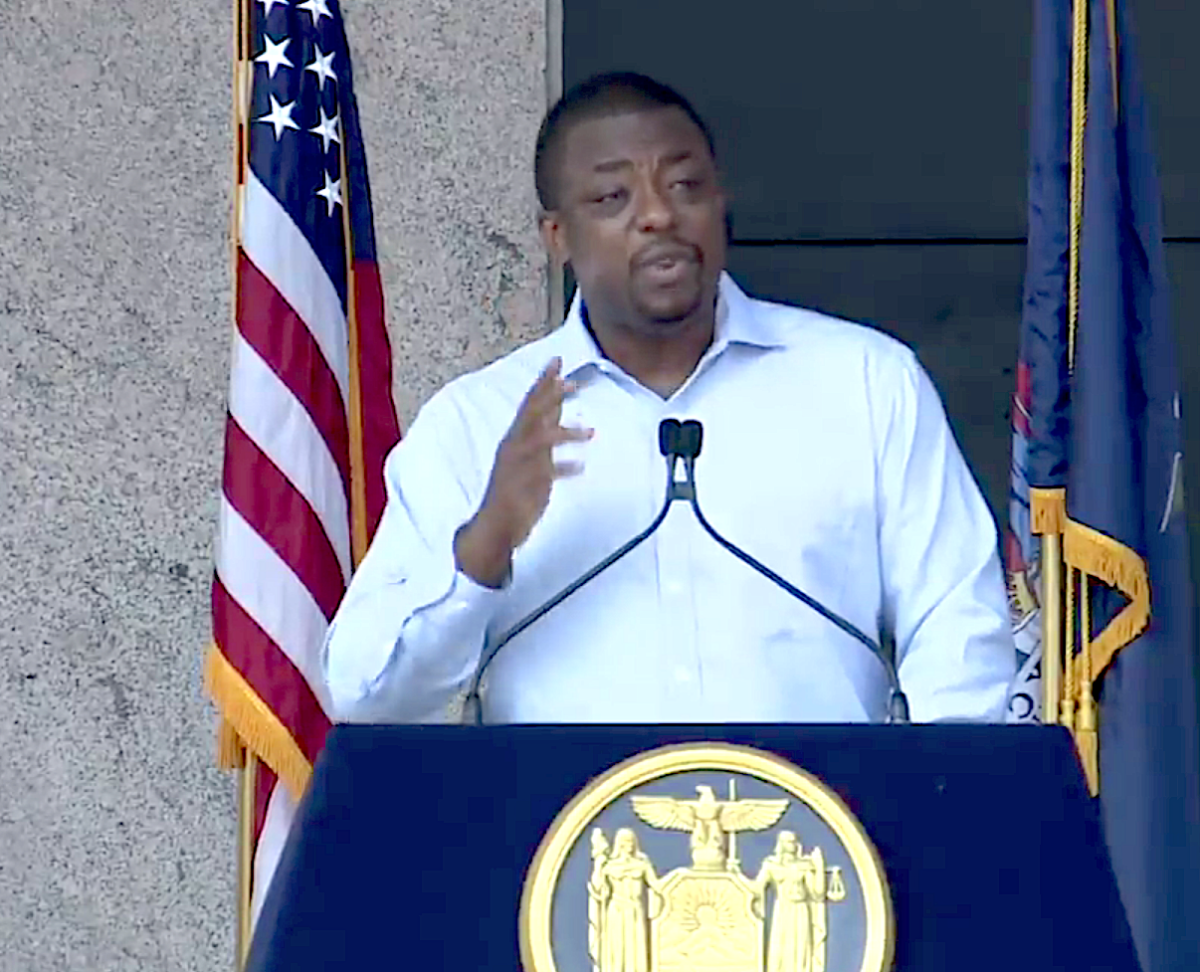Two nonprofit groups are doing what they say the federal and state governments haven’t done: charge a West Nyack concrete business with polluting the Hackensack River.
 New City Neighborhood Association and Hackensack Riverkeeper Inc. accused Rockland Transit Mix Inc. of violating the federal Clean Water Act in a complaint filed Aug. 17 in U.S. District Court, White Plains.
New City Neighborhood Association and Hackensack Riverkeeper Inc. accused Rockland Transit Mix Inc. of violating the federal Clean Water Act in a complaint filed Aug. 17 in U.S. District Court, White Plains.
Every time it rains or snows, the groups contend, contaminants from the concrete business drain into a tributary of the Hackensack River, and ultimately flow into Newark Bay, New York Harbor and the Atlantic Ocean.
Rockland Transit Mix CEO Bruno Palmieri, who is also named as a defendant, did not reply to a telephone message requesting his side of the story.
The company’s yard on Route 59, across the road from Palisades Center, stores sand, aggregate, stone, Portland cement and other materials and equipment used in making Ready-mix concrete.
New City Neighborhood Association describes its mission as educating residents on important issues and preserving their quality of life. It was founded in 2017, according to a state charitable corporation record, by New City resident Timothy Halo.
Hackensack Riverkeeper, based in Hackensack, New Jersey, spends about $700,000 a year on restoring and preserving the Hackensack River watershed according to its 2019 federal nonprofit tax return.
One of the most significant sources of water pollution, the complaint states, is stormwater runoff from industrial sites; the Clean Water Act requires industrial sites to get a stormwater permit, limit discharges of pollutants, and monitor the stormwater.
Rockland Transit Mix allegedly does not have a state stormwater permit, has not applied for a permit, and does not comply with stormwater regulations.
But neither the U.S. Environmental Protection Agency nor the State of New York “has commenced a civil or criminal action to redress the violations,” the organizations claim.
The lawsuit appears to be motivated by the concerns of one member of the New City group who is also a supporter of Riverkeeper, and who is not identified but will be if necessary “pursuant to appropriate privacy or confidentiality safeguards.”
That individual, who is “passionate about advocating for cleaner water,” found that the Hackensack River stinks, the water is cloudy, and there is no visible life, according to the complaint. The individual is also concerned that stormwater from the concrete company is impacting drinking water.
The company’s concrete batch plant, fleet of trucks, truck washing equipment, piles of materials, and other industrial equipment are all potential sources of pollution, the complaint states, that could include cement additives, fly ash, fuel and lubricants and other chemicals.
When it rains or snows or ice melts, the stormwater drains into a pond on the site, and from there, flows into a tributary of the Hackensack River.
The organizations accuse Rockland Transit Mix of discharging pollutants and failures to apply for a stormwater permit, develop a pollution plan, implement pollution controls, and monitor discharges.
They are asking the court to declare the company in violation of the Clean Water Act, stop it from discharging pollutants, and require it to apply for a stormwater permit. They are asking for unspecified civil penalties, and note in the complaint that violators can be assessed up to $56,460 a day per violation.
The nonprofit groups are represented by Manhattan attorneys Edan Rotenberg and Ben Pierce.




















